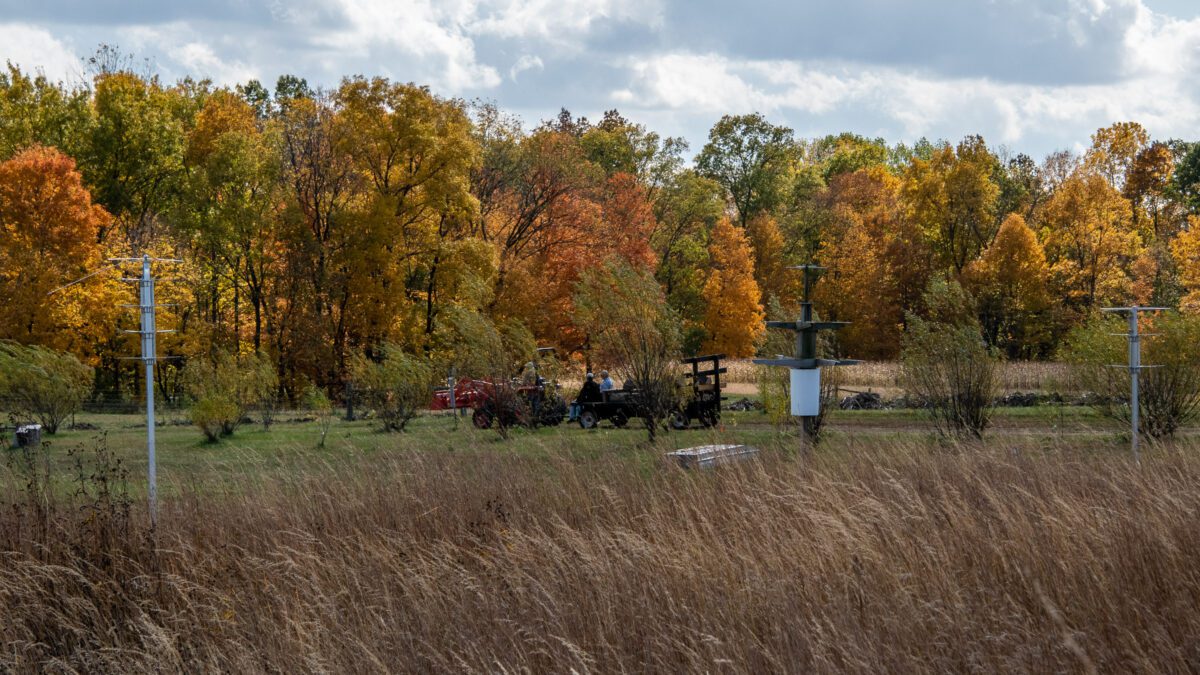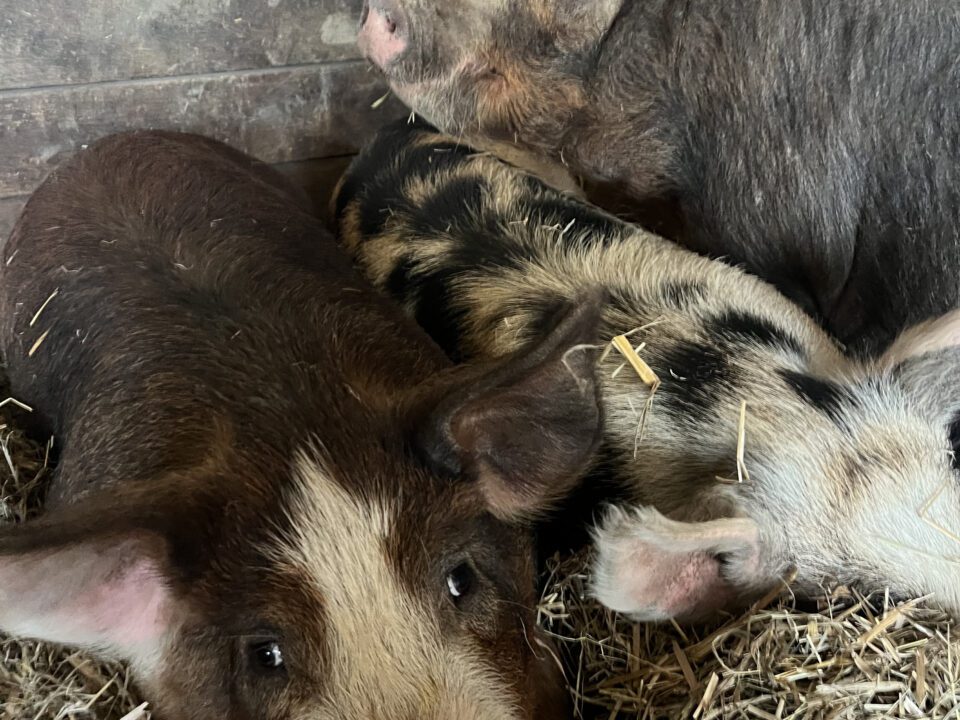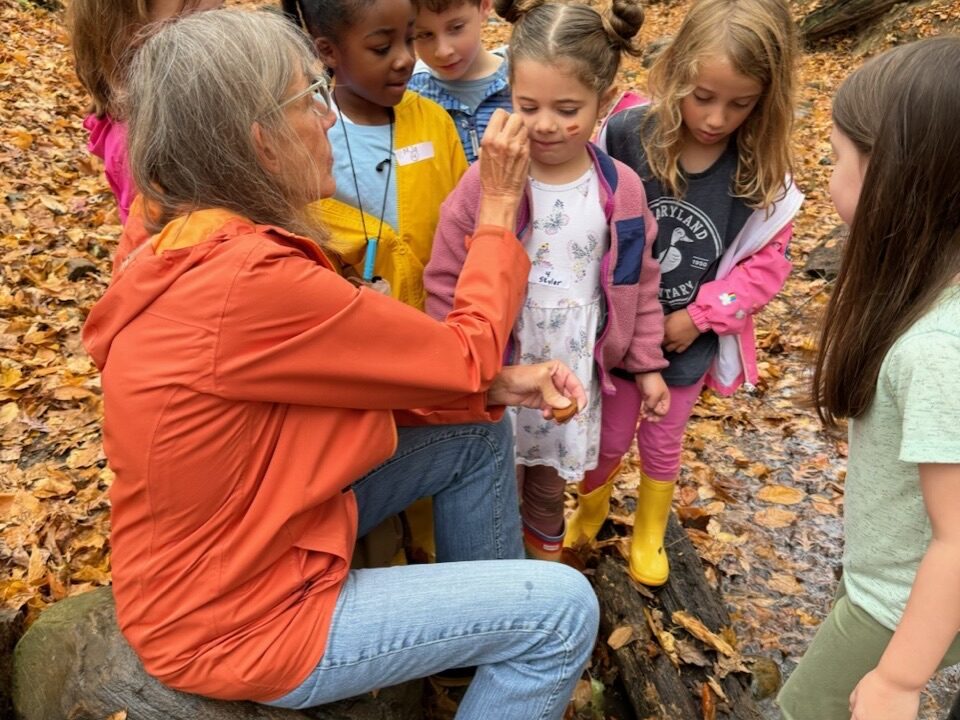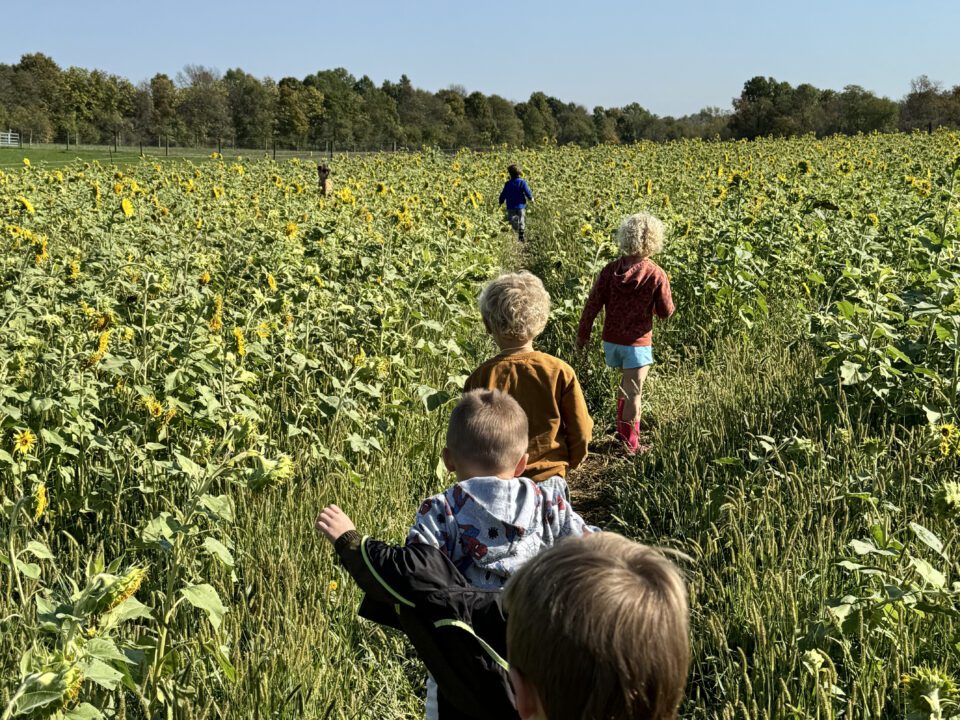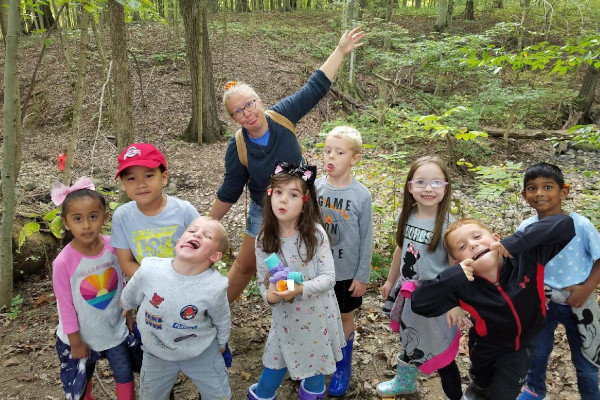
Having a Picnic, Despite No Brownies
June 15, 2013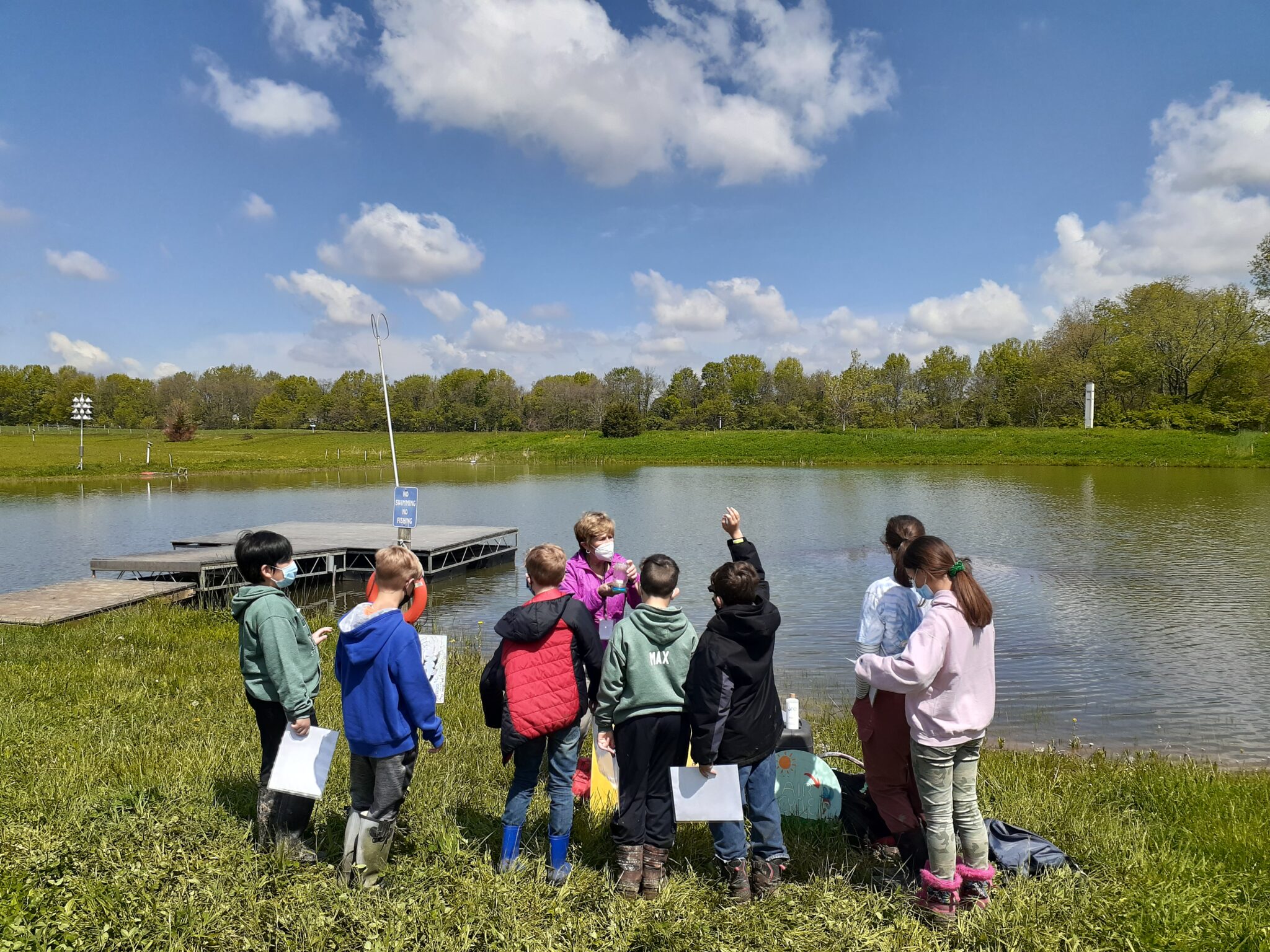
Farm Campers Join Search for Missing New Born
August 17, 2013Published in The Delaware Gazette: July 20, 2013
After sixteen days of daily, intermittent, heavy record‐breaking rains, there were huge sighs of relief when the staff at Stratford Ecological Center on Liberty Road heard the forecast on July 11, for at least a week of dry weather. We were certainly not alone as wheat farmers, in particular, were concerned that the golden seed heads would begin to sprout before they could harvest the crop, making it worthless.
Spelt is our alternative to wheat, and although the heads are full and the rains caused it to darken with mold, it was not as far along as wheat would have been. The seeds need to roll easily off the spelt head when rubbed between the palms. This week the sunshine helped dry up the mold and the ground, and next week we hope to harvest.
The oats in field 1 are now at the milky stage and the graceful weeping seeds, along with the stalk, are ready to cut for high protein hay. Once again the common ragweed is flourishing in that field, competing with the oats. The ragweed is a sign of soil fertility, and means there are plenty of earthworms working in the soil. The trouble is these earthworms are the major culprits for the flourishing ragweed, which grows thirty percent thicker where they reside.
For reasons that remain a mystery, the earthworms pull the ragweed seeds two inches below the surface where the seeds remain protected, fertilized, aerated and with easy access to sunlight until the time is right to emerge. It is a no win situation. If the worms were not there the protein rich seeds would be eaten by mice and birds, and the few remaining would have a harder time growing as they cannot bury themselves, but without the worms the loss of soil fertility would yield much poorer crops.
The weedy area between the rows of corn and vegetables reflects our inability to cultivate during the rains. The weeds have grown taller than the tomato and pepper plants. Farmer Jeff said he has never seen such a growing season. Everything, whether desired or not, is lush. The blackberries are ripe, huge and sweet. The tart Lodi apples, the first variety to ripen, are ready for picking. A crop of blushing peaches means success for the third year in a row.
We had major trouble with our old haybine when cutting the orchard grass and red clover in field 2. John Van Gundy, the farmer who loans us bulls, was willing to swap ours for one of his duplicate haybines. Farmer John’s machine has what I can only describe as flying saucers to do the cutting, and for safety reasons Farmer Jeff is the only one who will use it until he becomes more familiar with its idiosyncrasies.
Despite great efforts the hay baler is still not knotting properly. In order to bale the remaining hay in field 2 we thankfully accepted the offer of a nearby dairy farmer to make round bales, after he completed a field on Bunty Station Road. The work volunteers perform at Stratford is our lifeline, and we are so grateful for the many instances when tasks are competently and quietly completed.
Twin goat kids were born last Saturday and this marks the end of kidding season. Apollo, the multi‐colored buck, has proved less fertile than expected, with some nannies remaining open. He will be replaced. I was able to hold him for Janet McKenzie as she demonstrated hoof trimming to high school students from the OWjL summer camp. I wore a crisp long sleeved shirt and light colored pants to protect me from the sun. Apollo was noticeably experiencing the results of an over abundance of rich grass. He flicked his tail and I felt something land in my hair. At that point I decided to give up any attempt to keep clean, and soon my clothes suffered the same fate. Later on I had plenty of time to reflect over the scrub sink.
Roxy, the sow looks very bonnie, but shows no signs of farrowing any time soon. Fortunately that is not the case with the beef and milk cows. Their udders are filling out indicating a pending birth. The chickens are surviving even after the appearance of “baby” skunks. The bees arrived without incident on June 17, and seem to have settled well in the new hives.
Adult Farm Camp ended Monday evening with “smores” around the fire ring at the Sugar Shack. City folk and want‐to‐be small farmers got along great, as they inhaled the experience of farming with animals and crops. On Tuesday afternoon little girls in pretty dresses and their chaperones attended a hands‐on Garden Tea Party, organized by the Herb Group. Luckily, there was no shortage of eggs, dill, cucumbers, tea herbs, garnishes, and flowers for tussy mussy nosegays for the girls to collect, but let me just say the herb ladies had to be very creative when it came to ensuring ripe tomatoes.
There are still tickets available for our elegant summer affair “An Enchanted Evening.” This special night is our biggest fund raiser of the year and will be held on Saturday, July 27 from 6 pm. until 11 pm. on the lawn under a tent. We invite you to enjoy Hors d’oeuvres, music by Grapes of Jazz, romantic horse‐drawn carriage rides, dinner featuring our own meats, a special presentation “How to Teach a Cow to Smile,” Guest appearance by Father Time, plus a live and silent auction, dancing and star gazing.
Pauline Scott is a farm and nature guide at Stratford Ecological Center, 3083 Liberty Road, Delaware, Ohio, 43015, Tel. 740 363 2548. Email StratfordCenter@aol.com or visit our web site at StratfordEcologicalCenter.org


